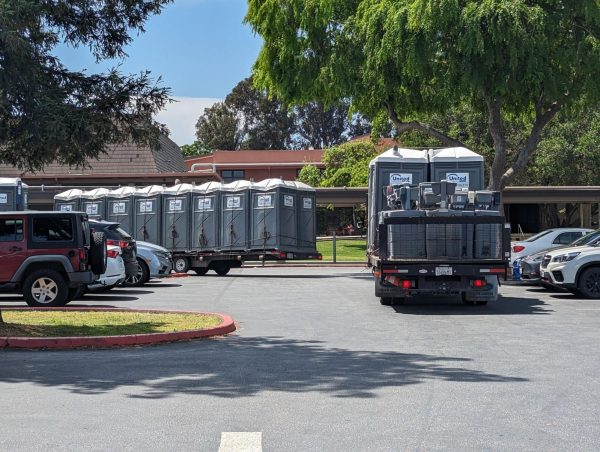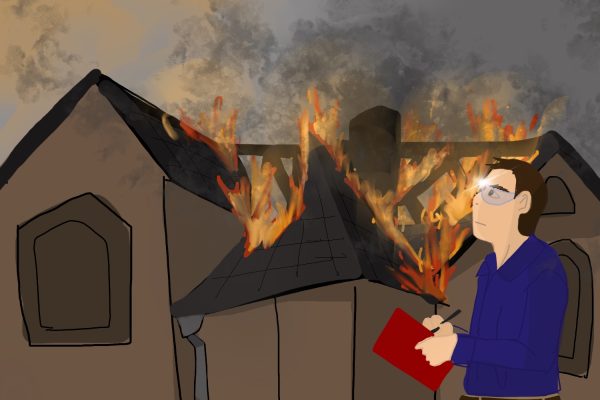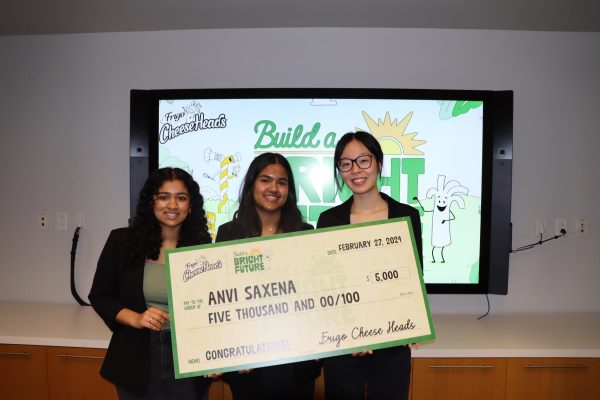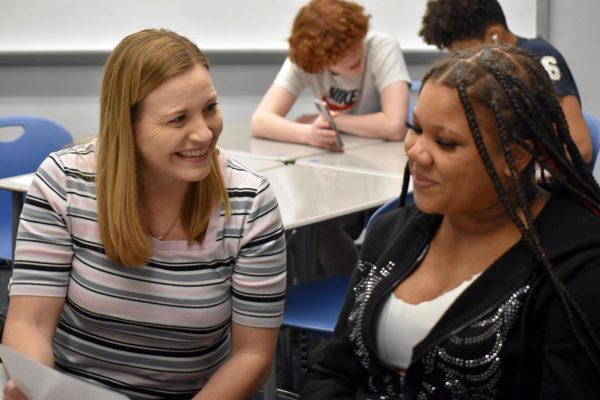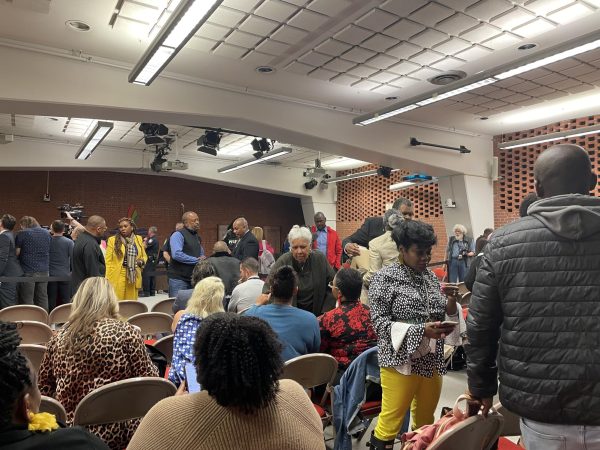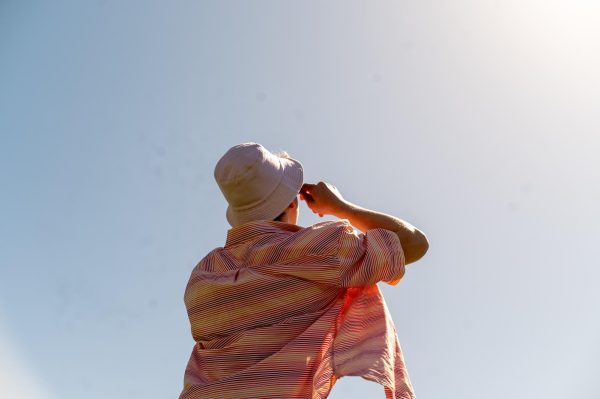New Ethnic Studies Course at MHS Invites Inclusivity for the Future
As part of the MHS social studies department’s initiative to revamp the curriculum, Land, People, and Power: An Ethnic Studies Approach to U.S. History already appears in the MHS 2021-2022 Course Offerings Booklet. This class will focus on critical thinking and diverse perspectives as they pertain to American history. Required for all freshmen starting next year, this course will add a new layer of cultural awareness to every student’s high school experience.
May 3, 2021
The way history is studied is always evolving. In schools across the nation, it is becoming increasingly common to encourage students to think critically about the past and apply their knowledge to the world around them — and Middleton High School (MHS) is no exception. A group of teachers from the social studies department have formed a committee to introduce a new class to the MHS curriculum. This course is intended to be a more progressive, inclusive addition to every student’s high school experience. Though still in early development, speaking to a few members of the committee provided some insight into what new things this course will bring to MHS.
This course, called “Land, People, and Power: An Ethnic Studies Approach to U.S. History”, is part of an effort to “amplify the courageous actions, voices and leadership of marginalized groups across all subject areas” according to the Middleton-Cross Plains Area School District Educational Services Department.
It should be noted that “curriculum renewal” is a regular part of education policy at MHS. Linda Schuerman, a social studies teacher at MHS and the department instructional leader, says that while “there have been people at the district level who have had different ideas,” this process cycles through every seven to ten years.
“We’ve been noticing for a long time that our curriculum has gaps,” Schuerman continued. “About five years ago our freshman history class started emphasizing human rights, and that lit our fire to start thinking about ethnic studies, groups, history, and how it’s taught. And also, things are happening in the world! We wanted to make sure that we were in a good spot.”
Alison Turner, another social studies teacher at MHS, believes that this process is vital because the curriculum becomes outdated and there are always new findings about how students learn. She explained that in-depth research and input from staff and students led the committee to build the foundation for “Land, People and Power.”.
Student input seems to be an important part of creating new curricula at MHS, inside and outside of the social studies department. Because part of the mission of this course is about reaching a broader range of the MHS community, it bodes well that student voices have been involved in the early planning process.
In general, the process has involved a lot of time, research, and learning as the social studies department actively works towards better learning opportunities for MHS students. Dakota Osborn, a social studies teacher at MHS, appreciates the efforts made by the department to take initiative in implementing tangible changes. In his first year of teaching, he has liked to see the MHS social studies department working towards positive changes in education.
Starting in the 2021–2022 school year, “Land, People and Power” will become part of these changes. The course will be a required credit for all freshmen at MHS. Previously, the three required social studies credits were made up of one credit of Modern World History (freshman year), 0.5 credit of Contemporary U.S. History (sophomore year), 0.5 credit of United States Government & Politics (sophomore year), and one extra credit of any social studies electives (junior and senior year). With upcoming curricular changes, Ethnic Studies will be worth one required credit, taking the place of Modern World History as the freshman social studies class. An unnamed “World History” course will be worth one required credit for sophomores, and United States Government & Politics will be expanded to become a one credit, year-long, required course for juniors.
As of now, “Land, People and Power” will follow a five unit, thematic structure made up of the following tentative sections: student identity, movement and displacement, power and privilege and systems of oppression, social movements, and agents of change and creating change in our community.
These topics will invite students to think critically about history and the context in which it has taken place. By examining the past through a variety of perspectives, students will not only expand their preexisting world views, but also develop the skills they need to become leaders in social change.
Notably, this course will also include more Indigenous history. Osborn cited Wisconsin’s Act 31, which mandates “instruction on the history, culture, and tribal sovereignty of Wisconsin’s eleven federally-recognized American Indian nations and tribal communities.” Unfortunately, Osborn explained, many of the standards set by this statute are not being met, and he hopes “Land, People, and Power” will make up for this deficit.
One of the major challenges in creating this course has been covering a broad range of material in the curriculum. Osborn said he worries about “doing all of these topics justice.” This is a valid concern, seeing how expansive and complex the units in the course could be. However, he explained, “Land, People, and Power” will be able to evolve as the social studies department learns more about how to effectively instruct students on such ideas.
“Any good educational professional changes things, especially in social studies, as the world changes. I am proud of that fact,” said Schuerman.
One feature of “Land, People, and Power” is that the plan from the beginning is to make changes as society transforms, learns, and grows. The dynamic nature of this course is part of what will make it effective for so many students. Schuerman explained that the process of actually implementing change can be frustratingly bureaucratic, but that “we’re doing it right now.”
Another challenge they have faced lies in the expectations of the social studies department to be the change-makers.
“The weight of making the change falls to us, but we’re hoping to be leaders in saying we want everyone to be heard,” said Turner.
She also would like to see similar changes implemented in every department across the building in the future.
A guiding force throughout this process has been a quote from Willie Johns, an influential member of the Brighton Seminole Reservation in Florida. It reads: “We are here to educate, not forgive. We are here to enlighten, not accuse.”
Turner, who presented this quote to the committee, believes it has been grounding for the team.
“We don’t want to teach a course to demonize white people, but whose voices usually aren’t heard?” she said. “We want those voices in the curriculum and written material that [students] see themselves in is more engaging. We want to teach kids to have empathy and to be good human beings.”
With these ideas in mind, everyone has hopeful visions of what “Land, People, and Power” could bring to the future of MHS. They stressed the importance of incorporating greater student voice to the forefront of conversations in the class. Another hope is that everyone in the MHS community will feel they are represented positively in historical discussions.
But Osborn’s vision for “Land, People, and Power” reaches beyond the walls of MHS. He emphasized a major goal he has for the course: “Giving students the tools and making them feel like they can become agents of positive change — that would be amazing.”
This story was originally published on The Cardinal Chronicle on April 26, 2021.



























![IN THE SPOTLIGHT: Junior Zalie Mann performs “I Love to Cry at Weddings,” an ensemble piece from the fall musical Sweet Charity, to prospective students during the Fine Arts Showcase on Wednesday, Nov. 8. The showcase is a compilation of performances and demonstrations from each fine arts strand offered at McCallum. This show is put on so that prospective students can see if they are interested in joining an academy or major.
Sweet Charity originally ran the weekends of Sept. 28 and Oct. 8, but made a comeback for the Fine Arts Showcase.
“[Being at the front in the spotlight] is my favorite part of the whole dance, so I was super happy to be on stage performing and smiling at the audience,” Mann said.
Mann performed in both the musical theatre performance and dance excerpt “Ethereal,” a contemporary piece choreographed by the new dance director Terrance Carson, in the showcase. With also being a dance ambassador, Mann got to talk about what MAC dance is, her experience and answer any questions the aspiring arts majors and their parents may have.
Caption by Maya Tackett.](https://bestofsno.com/wp-content/uploads/2024/02/53321803427_47cd17fe70_o-1-1200x800.jpg)
![SPREADING THE JOY: Sophomore Chim Becker poses with sophomores Cozbi Sims and Lou Davidson while manning a table at the Hispanic Heritage treat day during lunch of Sept 28. Becker is a part of the students of color alliance, who put together the activity to raise money for their club.
“It [the stand] was really fun because McCallum has a lot of latino kids,” Becker said. “And I think it was nice that I could share the stuff that I usually just have at home with people who have never tried it before.”
Becker recognizes the importance of celebrating Hispanic heritage at Mac.
“I think its important to celebrate,” Becker said. “Because our culture is awesome and super cool, and everybody should be able to learn about other cultures of the world.”
Caption by JoJo Barnard.](https://bestofsno.com/wp-content/uploads/2024/01/53221601352_4127a81c41_o-1200x675.jpg)





